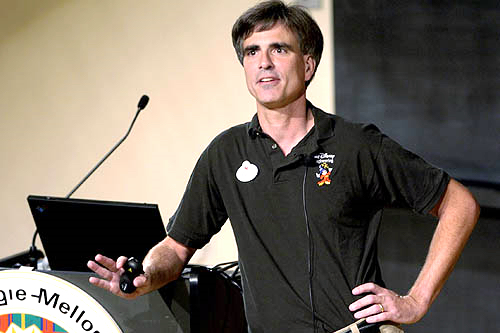Toward the End of Life
|
The question about which I am wrestling is how to communicate something about which I know today, but a decade ago thought that I knew but did not. It is frustrating to be caught on the horns of a dilemma. I want to convince my readers about something they cannot presently understand. I realize that dancing with death liberates you to live. However, if I read this essay a decade ago, I would diss the attempt to convince people about that premise. Hence, I am caught on the horns of a dilemma. Therefore, I will drop back and punt. Instead, I will have Steve Jobs explain the issue. What is interesting is that Jobs freely discussed the topic of this intellectual liberation as it is related to death. Try this quote, "Remembering that you are going to die is the best way I know to avoid the trap of thinking you have something to lose. You are already naked. There is no reason not to follow your heart."
There is no reason not to follow your heart." Jobs understood the value of addressing death so that people could follow their heart, which is precisely his modus operandi in his life. Because he was excited at the results, he spoke about it. Here is another one of Jobs' secular sermons making his point.
Now, you should be asking yourself how did Jobs understand the value of death? At the age of 17, he could not have known fully his mirror comment. However, in 2003, he was diagnosed with pancreatic cancer. Then he got it. Each of us can comprehend looking into a mirror. Long before Jobs mentioned it, I had looked into a mirror. My mother had breast cancer and lupus most of her adult life. From the age of 10, I saw my mother getting sicker and sicker. Death was not a stranger to me in my preteen and early adult years. Everyone in the family realized that her remaining years would be painful and short. She died in her early 50s. Additionally, my father dealt with my mother's illness but did not address his health issues. He had a double bypass six months after my mother's passing. The cardiologist wanted to do a triple bypass but was not able to do so due to its location. He could not have had built up all that occlusion in his arteries in six months. Therefore, starting when I was about 10 and going throughout much of my life, death was an extremely present reality for me. It truly affected me. Having said that, I did not fully comprehend that reality. However, dancing with dance caused me to get it, which changed my life. Therefore, I am attempting the impossible to awaken my readers knowing that you will not fully get exactly as I did not get it. Perhaps, I am dealing with the horns of my dilemma the best way that I can. Therefore, this essay is a heads-up.
Visit the Connecting the Dots page to read more about this topic.
Visit the The Last Lecture page to read more about this topic.
Visit the Dancing with Death page to read more about this topic.
Visit the Man in the Arena page to read more about this topic.
Visit The Mentors and Me page to read more about this topic.
Visit the Best and Worst of Times page to read more about this topic. 09/07/15 Follow @mountain_and_me |














